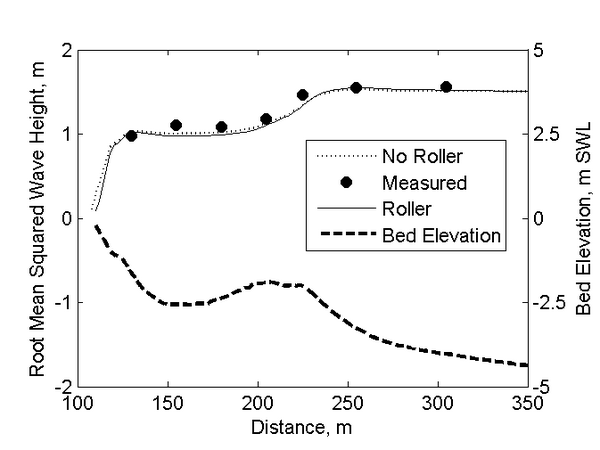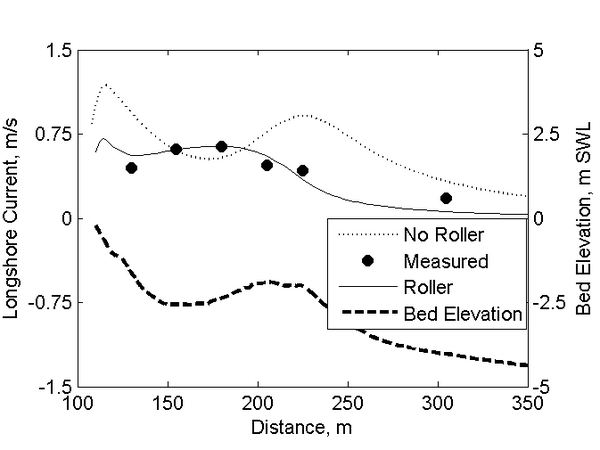DELILAH
UNDER CONSTRUCTION
Field Experiment
Waves and currents were measured at Duck, NC, during October 1-19, 1990 along a cross-shore array of instruments approximately every 3 hr. For additional details on the field experiment the reader is referred to Smith, et al. (1993). The datasets presented here were collected on October 14 for which the beach profile consisted of a pronounced longshore bar .
Model Setup
A nonuniform Cartesian grid is used with a variable resolution in the cross-shore direction between 2-6 m, and a constant resolution in the longshore direction of 6 m. Table 1 shows the offshore wave conditions at an 8-m water depth.
Table 1. Offshore wave conditions
| Variable | Value |
|---|---|
| Incident wave angle | 32º |
| Offshore significant wave height | 0.94 m |
| Wave period | 9.7 sec |
Table 2. CMS-Flow setup
| Setting | Value |
|---|---|
| Solution scheme | Implicit |
| Time step | 120 sec |
| Simulation duration | 3 hr |
| Ramp duration | 3 hr |
| Clock time | 1.2 min |
Table 3. CMS-Wave setup
| Setting | Value |
|---|---|
| Wave breaking | Jansen and Battjes |
| Spectrum | TMA |
| Directional spreading distribution | Cosine Power |
| Directional spreading parameter γ | 3.3 |
| Bottom friction | Off |
| Steering interval | 0.25 hr |
Results


Table 4. Goodness of fit statistics for the DELILAH field experiment
| No Roller | Roller | |||
| Hs, m | V, m/s | Hs, m | V, m/s | |
| RMSE | 0.0702 | 0.2968 | 0.0808 | 0.0740 |
| RMAE | 0.0311 | 0.5147 | 0.0375 | 0.0010 |
| R2 | 0.933 | 0.400 | 0.9274 | 0.9150 |
| Bias | 0.040 | -0.206 | 0.0486 | 0.0004 |
References
- Smith, J. M., Larson, M., and Kraus, N. C. (1993). "Longshore current on a barred beach: Field measurements and calculation," Journal of Geophysical Research, 98(C12), 22,717-22,731.